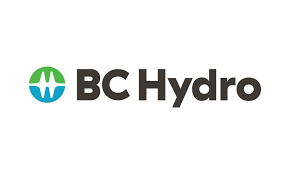Extreme weather shatters electricity demand records in 2021
BC Hydro data shows several electricity demand records were broken in 2021 after extreme weather hit B.C. at different times of the year.
The new report titled, “2021: A record-breaking year for electricity demand and extreme weather,” shows BC Hydro had record peak loads in 2021 due to extreme temperatures in both summer and winter that lasted for extended periods of time.
“We use peak loads to describe the electricity demand in the province during the highest load hour of each day,” says Kyle Donaldson, BC Hydro spokesperson. “With the heat dome in the summer and the sustained cold temperatures in December, we saw more record-breaking hours on more days last year than any other single year.”
In 2021, the weather also caused electricity anxiety for British Columbians – in a survey conducted by BC Hydro,76 per cent of respondents said they are concerned about the reliability of their electricity supply because of climate change.
“BC Hydro has enough supply options to meet growing demand for power,” says Donaldson. “We have always seen our highest demand in the winter months, but demand for power in the summer months is catching up and we saw a distinct shift in that direction last year with more air conditioning load.”
In summer 2021, many places in B.C. broke temperature records, and BC Hydro experienced 19 of its top 25 all-time summer daily peak records, including breaking its all-time summer peak hourly demand record.
The 2021 holiday season saw extremely cold temperatures and heavy snow throughout B.C. that resulted in the highest and longest sustained load levels ever experienced on the BC Hydro system. Overall, this winter so far, BC Hydro has experienced 11 of its top 25 all-time daily peak records. In fact, on December 27, BC Hydro broke its all-time peak hourly demand record.
BC Hydro is well positioned to provide safe, clean, reliable electricity to its customers during increases in demand and can also help people reduce their carbon footprint:
- BC Hydro has a surplus of electricity and expects to have more than it needs until about 2030. BC Hydro’s 20-year Integrated Resource Plan maps out how it will meet future demand for electricity through a combination of energy conservation and the development of generation resources.
- BC Hydro is encouraging electrification. British Columbians can reduce greenhouse gas emissions and help mitigate the effects of climate change by switching to hydroelectricity from fossil fuels: an electric heat pump can cool in the summer and heat in the winter, while electric vehicles significantly reduce greenhouse gas emissions.
For more, visit bchydro.com.






















